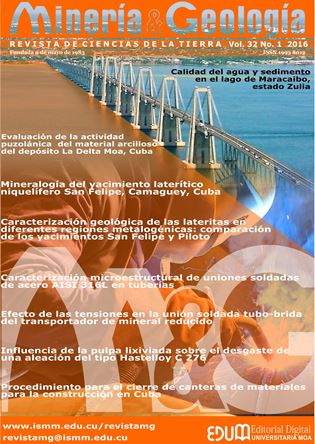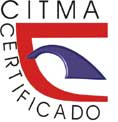Maracaibo lake water and sediment quality, Zulia State
Keywords:
Maracaibo Lake, water quality, environmental contamination, heavy metals.Abstract
The Maracaibo Lake water and sediment were tested in six sampling stations distributed in the north and south of the lake. The physicochemical and environmental parameters were determined as well as the relation was established between these parameters and the areas affected by waste discharge, landfills, liquid and solid industrial wastes resulting from oil prospection and agricultural activities and organic material carry-overs in rivers and pluvial drainage. This shows a level of contamination caused by increased content of nutrients (nitrogen and phosphorus) in the areas adjacent to the rivers and residual water discharge. It was observed that a saline wedge was formed due to the penetration of lake waters coming from the Gulf of Venezuela. The concentration of heavy metal was below permissible levels in the water and very heterogeneous in the sediments.Downloads
References
CASTROS, G. 2007: El informe técnico diseño y monitoreo frente a derrames de hidrocarburos. UBV.
CORONA-LISBOA, J. L. 2013: Contaminación antropogénica en el lago de Maracaibo, Venezuela. Biocenosis 27.
EPA. 1997: Test Methods for Evaluating Solid Waste: Physical/Chemical Methods SW-846.
GACETA OFICIAL DE LA REPÚBLICA DE VENEZUELA. 1996: Normas para la Clasificación y el Control de la Calidad de los Cuerpos de Agua y Vertidos o Efluentes Líquidos. Decreto 883: 50-62.
HIDALGO, J. 2009: Efecto de los derrames petroleros sobre los hábitats marinos. Revista Ciencia Ahora.
MARCOVECCHIO, J. & FREIJE, R. 2013: Procesos químicos en Estuarios. Universidad Tecnológica Nacional.
RAMÍREZ, A. 2004: La Lenteja de Agua–Lemna en el lago de Maracaibo.PlaniGestión, C. A.
Published
How to Cite
Issue
Section
Copyright (c) 2016 Giovany J. Bracho, José Quintín Cuador-Gil, Rosa Margarita Rodríguez-Fernández

This work is licensed under a Creative Commons Attribution-NonCommercial 4.0 International License.
- Authors retain copyright and guaranteeing the right magazine to be the first publication of the work as licensed under a Creative Commons Attribution-NonCommercial that allows others to share the work with an acknowledgment of the work's authorship and initial publication in this journal.
- Authors may establish separate supplemental agreements for the exclusive distribution version of the work published in the journal (eg, place it in an institutional repository or publish it in a book), with an acknowledgment of its initial publication in this journal.
- Authors are allowed and recommended to disseminate their work through the Internet (e.g., in institutional telematic archives or on their websites) before and during the submission process, which can produce interesting exchanges and increase citations of the published work. (See The effect of open access)










